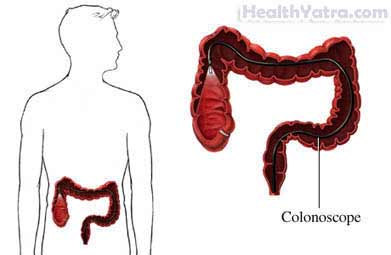Definition
Inflammatory bowel disease (IBD) is swelling and irritation of the intestines. This can cause a range of symptoms including abdominal discomfort and problems breaking down food. Two forms of of IBD are:
- Crohn’s disease
- Ulcerative colitis
IBD is a lifelong illness. The symptoms may be constant or occur during flare-ups. There is no cure for IBD but treatments can help control symptoms.
Causes
The exact cause of IBD is not known. Some believe IBD may be the result of:
- Inherited genetics (may be a family history of IBD)
- Reaction to a virus or bacteria that damages the colon and rectum
- Compromised immune system or infection that affects the immune system
Risk Factors
The following factors increase your chance of developing IBD:
- Having a family member with IBD
- Being Caucasian or of northern European ancestry
- Being of Jewish ancestry (increases the risk of certain types of IBD)
- Having problems with the immune system
Symptoms
Symptoms depend on the type of IBD, but common symptoms may include:
- Abdominal pain and cramping
- Diarrhea
- Weight loss and loss of appetite
- Bleeding from the intestines
- Ulcers in the intestines
- Inflammation of the rectum
- Draining around the rectum
- Bloating or feeling of fullness
- Gas
- Bloody diarrhea
- Abdominal sounds (eg, gurgling)
- Nausea and vomiting
- Joint pain
Diagnosis
Your doctor will ask about your symptoms and medical history. A physical exam will be done. Your doctor may need images of the intestines to look for swelling and irritation or other conditions. Image may be taken with:
- Upper GI endoscopy
- Colonoscopy
- Barium enema
- X-ray
- Capsule endoscopy
Your doctor may also look for signs of infection through:
- Blood tests
- Stool culture

Treatment
Talk with your doctor about the best treatment plan for you. Treatment options include:
Lifestyle Changes
IBD symptoms may be reduced with simple dietary changes. In general eat a diet that is:
- Low in fat
- Rich in fruits and vegetables
- Consider reducing fiber and dairy products
Overall wellness may also play a role in reducing IBD flare-ups. Find ways to reduce stress. Get plenty of rest.
Medications
Most medicines for IBD focus on reducing the swelling and irritation. Medicines include:
- Anti-inflammatory drugs
- Corticosteroids
- Immune system suppressors
- Antibiotics to kill germs in the intestinal tract
- Anti-diarrhea medicine
- Laxatives
- Pain relievers
Surgery
Surgery is not helpful for all types of IBD. For people with very severe ulcerative colitis, a surgery to remove the colon may be done.
Prevention
Since the cause is not clear, there are no known prevention steps.
